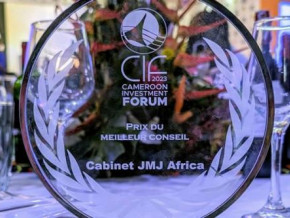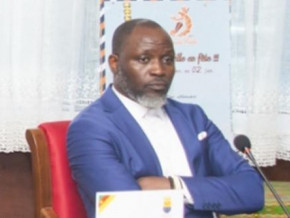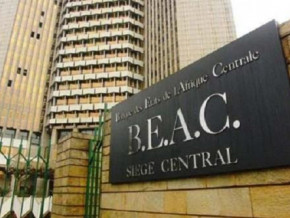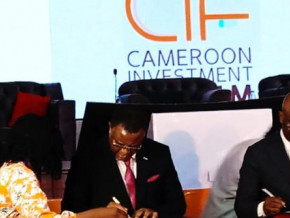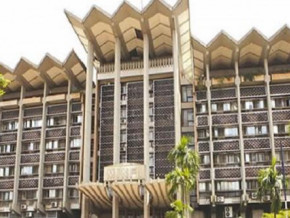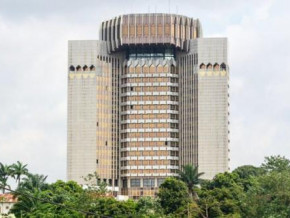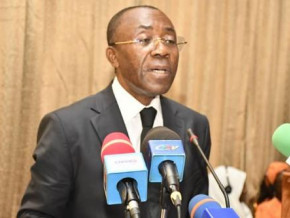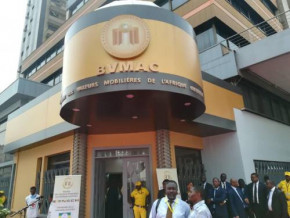
CEMAC special summit: BEAC’s financial support to BDEAC awaiting decision of Heads of State

(Business in Cameroon) - BDEAC, whose mission is to finance the CEMAC region’s development, is facing a major problem with the refinancing of its loans by the Central Bank BEAC. Between regulatory, structural and human constraints, CEMAC Heads of State who had instructed the central bank to support the overhaul of the BDEAC will have to set a new course.
The issue was on the agenda of the extraordinary in-camera meeting of the sub-region’s finance ministers held last November 19. Without further details, Cameroonian media simply stated that “the financing of community infrastructure has been a concern.”
However, behind these simple terms, the trade-offs to be made are complex. “It is clear that the situation is worrying and we wonder if, behind this structural problem, there are no problems involving individuals,” a senior CEMAC official told Ecofin Agency.
The BEAC believes that it has become risky to continue supporting BDEAC and provides several reasons for its stance.
Major constraints to BEAC's support to the BDEAC
The first constraint is of legal nature. According to sources contacted within the BEAC, as BDEAC's largest shareholder (33.8% of the shares), the central bank should open an associated current account of XAF240 billion. This has been done, but there remains a balance of XAF120 billion, which the development bank required.
However, with the central bank’s own fund having fallen sharply (by 58% in 2018 alone), the Beac's board of directors was forced to refuse to make this disbursement in July 2019. The argument put forward is that this commitment must be made, according to texts, within the limits of the available equity capital.
One of the reasons for this sharp decrease is that the Beac had to record an amount of XAF220 billion as a loss because of the change in the method of calculating receivables from States. At the same time, the annual results for the 2018 financial year show that the Central Bank's investment portfolio has either expired or been sold on the market. In both cases, Beac's own funds can no longer benefit from the capital gains associated with these investments.
At the end of September 2019, the institution's "free" equity capital was only XAF140 billion. It is difficult, in this context, to provide the amount desired by the BDEAC since Beac has other commitments that require at least XAF80 billion. Among these commitments, we can mention the printing of the new range of secure banknotes for the sub-region.
The second constraint comes from the stabilization programme endorsed by heads of state and implemented with the International Monetary Fund. In its latest report on CEMAC, the IMF estimates that Beac's exposure to BDEAC is excessive since the role of a central bank is not to support a development bank.
It, therefore, suggested that the Beac should withdraw from BDEAC rather than increase its exposure. In addition, the Bretton Woods Institution considers that any refinancing granted to the Beac for the benefit of the BDEAC for public projects constitutes a monetary advance to States, which is now prohibited to the central bank.
A compromise solution…. But with challenges
Despite the constraints noted above, the Central Bank has found a compromise that above all allows it to comply with IMF requirements. “The Heads of State instructed the Beac to support the structural transformation of BDEAC. This instruction was accepted so the Central Bank had to comply,” a source close to the case explains.
It was thus decided that the Development Bank could refinance itself out of the XAF150 billion margin available for its intervention on the money market. However, the recourse to this mechanism has aspects that may not satisfy BDEAC's current management. It implies, for instance, that the Central Bank should look into the management of the BDEAC, a situation that is not tolerated. At the Beac, it is explained that there is a need for visibility on BDEAC projects.
The main argument is that from 2019 onwards, accounting provisions should be under the IFRS9 standard, which is stricter and more rigorous in terms of loss recognition. This argument seems like a request for the BDEAC to be more transparent and efficient, a situation which is creating a deep unease within the development bank.
In 2019, it decided to find alternative solutions. In that regard, It entered into new alliances and plans to obtain a rating, in 2020, in order to have the possibility of going into capital markets located beyond the CEMAC region.
In the end, it will be up to the Heads of State to decide on this matter. Since both institutions are owned by the member governments, they can set the course to follow.
The countries to follow in this case are Gabon and Chad, which have the most difficulty in borrowing on the regional market (with high-interest rates). Overall, there is XAF155 billion worth of projects for the benefit of the two countries waiting for a solution.
Idriss Linge
Mags frontpage
- Most read 7 days
- shared 1 month
- read 1 month



